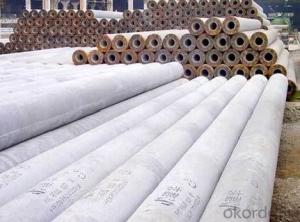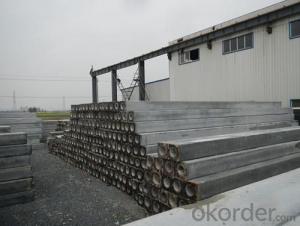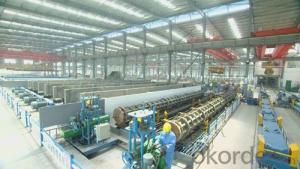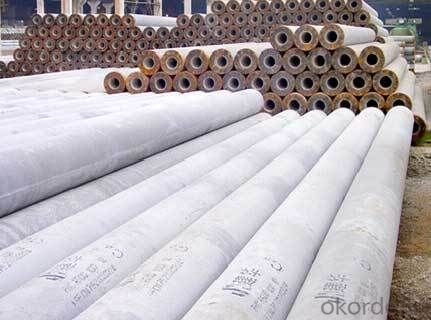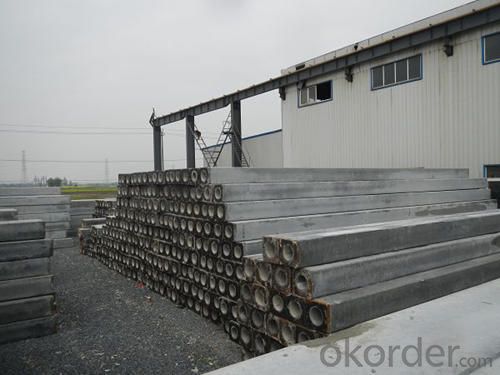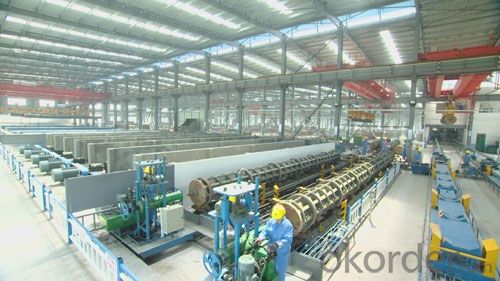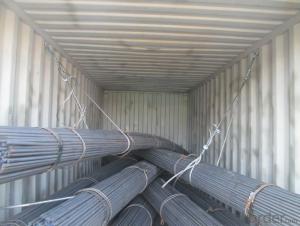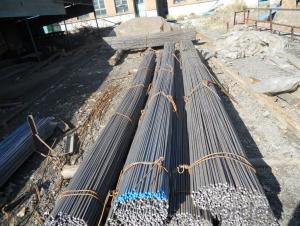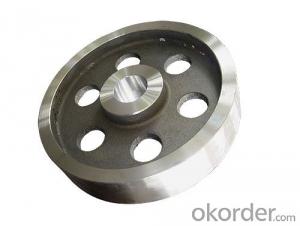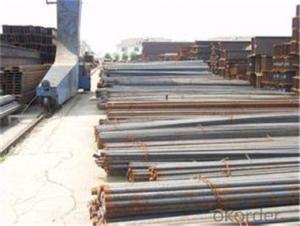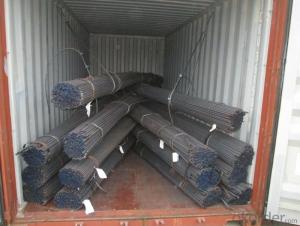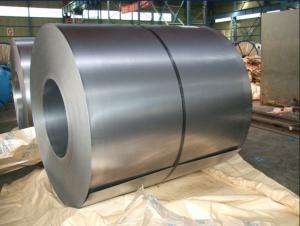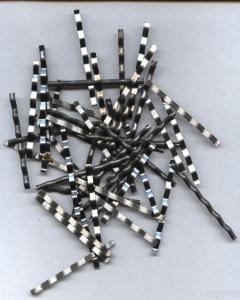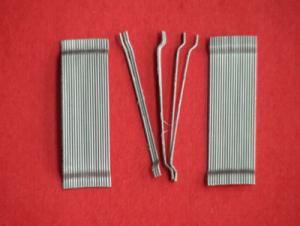Round Steel for Construction with High Quality Made in China Hot Rolled
- Loading Port:
- China main port
- Payment Terms:
- TT or LC
- Min Order Qty:
- 25 m.t.
- Supply Capability:
- 2000 m.t./month
OKorder Service Pledge
OKorder Financial Service
You Might Also Like
Product Description:
OKorder is offering Round Steel for Construction with High Quality Made in China Hot Rolled at great prices with worldwide shipping. Our supplier is a world-class manufacturer of steel, with our products utilized the world over. OKorder annually supplies products to European, North American and Asian markets. We provide quotations within 24 hours of receiving an inquiry and guarantee competitive prices.
Product Applications:
Round Steel for Construction with High Quality Made in China Hot Rolled are ideal for structural applications and are widely used in the construction of buildings and bridges, and the manufacturing, petrochemical, and transportation industries.
Product Advantages:
OKorder's Round Steel for Construction with High Quality Made in China Hot Rolled are durable, strong, and resist corrosion.
Main Product Features:
· Premium quality
· Prompt delivery & seaworthy packing (30 days after receiving deposit)
· Corrosion resistance
· Can be recycled and reused
· Mill test certification
· Professional Service
· Competitive pricing
Packaging & Delivery:
Packaging Detail: products are packed in bundle and then shipped by container or bulk vessel, deformed bar is usually naked strapping delivery, when storing, please pay attention to moisture proof. The performance of rust will produce adverse effect.
Each bundle weight: 2-3MT, or as required
Payment term: TT or L/C
Delivery Detail: within 45 days after received advanced payment or LC.
Label: to be specified by customer, generally, each bundle has 1-2 labels
Trade terms: FOB, CFR, CIF
FAQ:
Q1: Why buy Materials & Equipment from OKorder.com?
A1: All products offered byOKorder.com are carefully selected from China's most reliable manufacturing enterprises. Through its ISO certifications, OKorder.com adheres to the highest standards and a commitment to supply chain safety and customer satisfaction.
Q2: How do we guarantee the quality of our products?
A2: We have established an advanced quality management system which conducts strict quality tests at every step, from raw materials to the final product. At the same time, we provide extensive follow-up service assurances as required.
Q3: How soon can we receive the product after purchase?
A3: Within three days of placing an order, we will begin production. The specific shipping date is dependent upon international and government factors, but is typically 7 to 10 workdays.
Images:
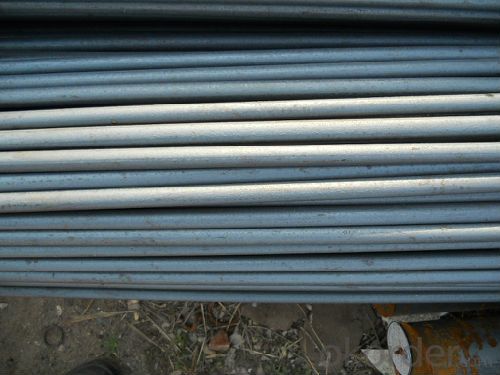
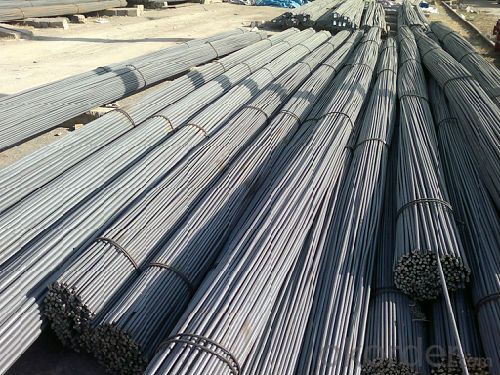
- Q: How are steel plates used in the fabrication of storage silos?
- Steel plates are used in the fabrication of storage silos as they provide strength, durability, and corrosion resistance necessary for containing and storing various materials. These plates are formed, welded, and assembled to create the cylindrical structure of the silo, ensuring it can withstand the weight of the stored materials and any external forces.
- Q: What are the uses of steel grating in safety platforms?
- Steel grating is commonly used in safety platforms for various purposes. Firstly, it provides a sturdy and durable surface that can withstand heavy loads, ensuring the safety of workers or individuals standing or walking on the platform. Additionally, the open design of steel grating allows for efficient drainage of liquids, preventing the accumulation of water or other substances that could cause slipping hazards. Moreover, the anti-slip properties of steel grating enhance traction and reduce the risk of accidents. Overall, steel grating is essential in safety platforms as it offers strength, drainage capabilities, and slip resistance, ensuring a secure and safe environment.
- Q: What are the different types of steel angles and their applications in the construction of bridges?
- There are several types of steel angles commonly used in the construction of bridges. These include equal leg angles, unequal leg angles, and L-shaped angles. Equal leg angles have equal length legs and are often used in the fabrication of trusses and bridge girders. Unequal leg angles have different length legs and are commonly used in the construction of stiffeners and bracing elements. L-shaped angles, also known as corner or angle irons, are used for various purposes, such as providing structural support and connections in bridge components. Overall, steel angles play a crucial role in ensuring the stability, strength, and durability of bridges.
- Q: What are the different types of surface finishes for steel products?
- There are several types of surface finishes for steel products, including hot-dip galvanizing, electroplating, powder coating, painting, and passivation.
- Q: What are the common uses of steel products in construction?
- Steel products are commonly used in construction for a variety of purposes such as structural framing, reinforcement of concrete, roofing, cladding, and fabrication of beams, columns, and trusses. Additionally, steel is used in the construction of bridges, highways, and other infrastructure projects due to its strength, durability, and ability to withstand heavy loads and harsh environmental conditions.
- Q: What are the common types of steel products used in the e-commerce and logistics industry?
- Some common types of steel products used in the e-commerce and logistics industry include steel pallets, steel storage racks, steel shipping containers, steel shelving units, and steel security cages.
- Q: What are the different types of steel valves?
- There are several different types of steel valves, including gate valves, globe valves, ball valves, butterfly valves, check valves, and plug valves. Each type has its own specific design and function, catering to different applications and industries.
- Q: What are the different types of steel sheet and their uses?
- There are several types of steel sheets available, each with distinct properties and uses. Some common types include hot-rolled steel, cold-rolled steel, galvanized steel, and stainless steel. Hot-rolled steel sheets are often used in construction and manufacturing due to their strength and durability. Cold-rolled steel sheets, on the other hand, are smoother and have tighter tolerances, making them suitable for applications requiring precise dimensions. Galvanized steel sheets have a protective zinc coating, making them resistant to corrosion, and are commonly used in outdoor structures or for automotive parts. Stainless steel sheets are known for their resistance to corrosion and high temperature, making them ideal for applications in food processing, medical equipment, and chemical industries. Overall, the choice of steel sheet type depends on the specific requirements and intended use of the product.
- Q: How do steel products contribute to the water and wastewater treatment sector?
- Steel products play a crucial role in the water and wastewater treatment sector. They are used for constructing various infrastructure components such as pipelines, tanks, and treatment systems. Steel's durability, strength, and resistance to corrosion make it an ideal material for these applications. Additionally, steel products can be customized to meet specific requirements, ensuring efficient and reliable water and wastewater treatment processes.
- Q: What are the different types of steel wire ropes and their uses in marine applications?
- There are various types of steel wire ropes used in marine applications. Some common ones include galvanized steel wire ropes, stainless steel wire ropes, and PVC-coated steel wire ropes. Galvanized steel wire ropes are coated with zinc to protect against corrosion and are commonly used for general marine applications such as mooring lines, towing, and rigging. Stainless steel wire ropes, on the other hand, are highly resistant to corrosion and are often utilized in marine environments with high exposure to saltwater, such as for yacht rigging, fishing nets, and architectural elements on boats. PVC-coated steel wire ropes provide an additional layer of protection against corrosion and are suitable for applications where abrasion resistance is required, such as in winches, cranes, and lifting equipment used in marine settings. Overall, the choice of steel wire rope in marine applications depends on factors like the level of corrosion resistance needed, the specific application requirements, and the environmental conditions it will be exposed to.
Send your message to us
Round Steel for Construction with High Quality Made in China Hot Rolled
- Loading Port:
- China main port
- Payment Terms:
- TT or LC
- Min Order Qty:
- 25 m.t.
- Supply Capability:
- 2000 m.t./month
OKorder Service Pledge
OKorder Financial Service
Similar products
Hot products
Hot Searches
Related keywords
